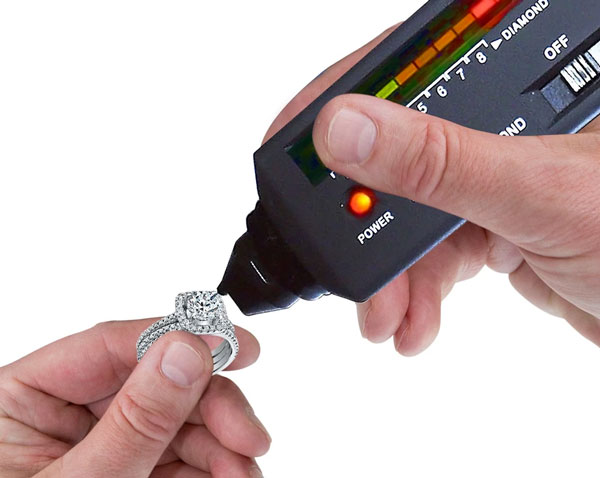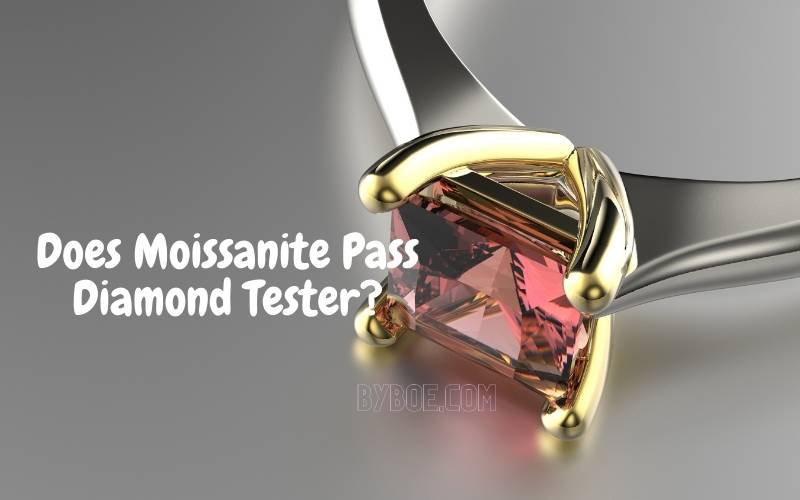Want to know more about Will A Lab Created Diamond Pass A Diamond Tester? Read this article to get the information you need.
In the world of gemstones, diamonds have always held a special allure. Their exceptional brilliance, durability, and rarity have made them a symbol of love, commitment, and luxury. However, in recent years, the advent of lab-created diamonds has raised questions about the authenticity and value of these precious stones.

One of the primary concerns surrounding lab-created diamonds is whether they can be distinguished from their natural counterparts. Diamond testers are commonly used by jewelers to differentiate between real diamonds and simulants, such as cubic zirconia or moissanite. But can these testers reliably identify lab-created diamonds?
The Science Behind Diamond Testers
Diamond testers utilize thermal conductivity to determine the authenticity of a gem. Natural diamonds have a high thermal conductivity, meaning they conduct heat rapidly. When a diamond tester is placed on a stone, it emits a small amount of heat and measures the rate at which the heat is transferred. If the heat transfer rate matches that of a known diamond, the tester will indicate a “pass.”
Lab-Created Diamonds and Diamond Testers
Lab-created diamonds are chemically, structurally, and optically identical to natural diamonds. They possess the same high thermal conductivity and, therefore, can easily pass most diamond testers.
However, it’s important to note that some advanced diamond testers, known as “spectrometers,” can detect subtle differences in the chemical composition of lab-created diamonds. These spectrometers use a technique called photoluminescence spectroscopy to analyze the stone’s response to ultraviolet light. By measuring the specific wavelengths of light emitted by the stone, spectrometers can differentiate between natural and lab-created diamonds.
Implications for Consumers
The ability of lab-created diamonds to pass standard diamond testers raises questions about potential fraud and misrepresentation. Unscrupulous sellers may attempt to pass off lab-created diamonds as natural diamonds at a higher price. It is essential for consumers to be aware of this possibility and to take precautions when purchasing diamonds.
To ensure authenticity, consider purchasing diamonds from reputable jewelers who provide certification from reputable gemological laboratories. These laboratories use a combination of diamond testing techniques, including spectrometers, to verify the origin of a diamond.
Tips and Expert Advice
Here are some tips and expert advice for consumers when purchasing diamonds:
- Ask for a certificate: Obtain a certification from a reputable gemological laboratory that confirms the origin of the diamond.
- Be aware of the price: Lab-created diamonds are typically sold at a lower price than natural diamonds of comparable size and quality.
- Consider your needs: If you are primarily interested in the beauty and durability of a diamond, a lab-created diamond may be a wise choice. However, if you value the rarity and heritage of natural diamonds, then a natural diamond may be more appropriate.
Ultimately, the decision of whether to purchase a lab-created or natural diamond is a personal one. However, by arming yourself with knowledge and following these tips, you can make an informed choice that meets your needs and expectations.
FAQs on Lab-Created Diamonds and Diamond Testers
- Q: Can diamond testers detect all lab-created diamonds?
A: Standard diamond testers typically cannot differentiate between lab-created and natural diamonds. However, advanced spectrometers can detect subtle differences in chemical composition.
- Q: Are lab-created diamonds less valuable than natural diamonds?
A: Lab-created diamonds are typically sold at a lower price than natural diamonds, but their value depends on various factors, including size, quality, and market demand.
- Q: Is it ethical to purchase lab-created diamonds?
A: Lab-created diamonds are produced in controlled environments, which eliminates the ethical concerns associated with mining natural diamonds, such as environmental degradation and human rights violations.
Conclusion
The ability of lab-created diamonds to pass diamond testers highlights the importance of obtaining a certificate of authenticity from reputable gemological laboratories when purchasing diamonds. By being informed consumers, we can protect ourselves from fraud and ensure that we are purchasing diamonds that meet our expectations and values.
Are you interested in learning more about lab-created diamonds and their impact on the diamond industry? Let us know in the comments below and share your thoughts and experiences.

Image: www.byboe.com
An article about Will A Lab Created Diamond Pass A Diamond Tester has been read by you. Thank you for visiting our website. We hope you benefit from Will A Lab Created Diamond Pass A Diamond Tester.